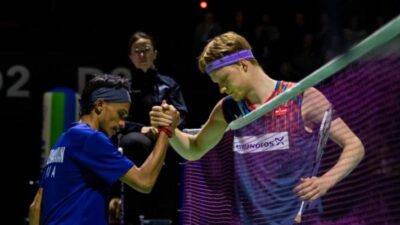Venus Williams, once a teenage prodigy who helped redefine the power game in women’s tennis, is now once again etching her name into the sport’s history — this time as a symbol of enduring perseverance, physical resilience, and unwavering competitive fire.
Earlier this week, the 45-year-old seven-time Grand Slam champion shocked the tennis world by winning a tour-level match in Washington, D.C., nearly two years after her previous victory. With that triumph, Williams became the second-oldest player in the history of the WTA Tour to win a main-draw match, only behind Billie Jean King, who won her last at age 46 in 1983.

Earlier-this-week-the-45-year-old seven-time-Grand-Slam-champion-shocked-the-tennis-world-by-winning-a-tour-level-match-in-Washington-D.C-nearly-two-years-after-her-previous-victory
For many, the victory was a pleasant surprise. For Venus, it was the culmination of a painful, deliberate, and deeply personal journey — a comeback that defies time, odds, and even expectations.
A Victory Years in the Making
When Williams stepped onto the hard courts at the WTA 250 event in Washington this week, it was her first competitive appearance in over 15 months. Her last tour-level win came almost two years ago. Between then and now, she underwent surgery to remove uterine fibroids — a painful condition that had quietly plagued her for years.

When-Williams-stepped-onto-the-hard-courts-at-the-WTA-250-event-in-Washington-this-week-it-was-her-first-competitive-appearance-in-over-15-months
The WTA Tour, in fact, had listed her as an “inactive player” until last week, a cold administrative label that gave no hint of the internal struggle Williams had endured. Her physical setbacks, exacerbated by age and medical complications, had led many to believe that her days on the court were behind her.
But if there’s one thing history has taught us, it’s this: never count Venus Williams out.
A Staggering Legacy of Longevity
The match itself wasn’t just about statistics — though the numbers are impressive. Williams’ win marked her 819th career victory, placing her in an elite club of players who’ve won matches in four separate decades — the 1990s, 2000s, 2010s, and now the 2020s. It was also her 24th season with at least one match victory, another record that speaks to her enduring excellence.
And yet, this wasn’t about chasing records. This was about purpose.
“I didn’t come back to just be out here,” Williams told reporters after her win. “I came back because I still believe I can compete. I know what it takes, and I’m prepared to go through that again. It’s not easy, it won’t be easy, but that’s the point.”

I-didn’t-come-back-to-just-be-out-here-Williams-told-reporters-after-her-win-I-came-back-because-I-still-believe-I-can-compete
Her win wasn’t just symbolic — it was hard-fought. The match lasted over two hours, a battle of attrition and focus. There were flashes of vintage Venus: the blistering forehands, the powerful first serve, and that unmistakable fighting spirit. But there were also signs of her current limitations — slower movement, occasional mistimed shots, and long rallies where she seemed to will her body to keep up.
In the end, it wasn’t about dominating. It was about enduring.
The Quiet Courage Behind the Comeback
Behind the scenes, Williams’ return was nothing short of courageous. The surgery to remove fibroids, which are benign tumors in the uterus, can be life-altering. For athletes, particularly female athletes in their 40s, the road back to high-level competition can be especially daunting.

For-athletes-particularly-female-athletes-in-their-40s-the-road-back-to-high-level-competition-can-be-especially-daunting
“I think people underestimate how much your body changes when you go through something like that,” said Williams. “The energy, the stamina, the recovery — everything is different. But I had to give myself permission to try.”
She spoke openly about the emotional and psychological toll of feeling sidelined and irrelevant. “There were days I didn’t recognize my own body. Days I wanted to give up. But I wasn’t ready to write the last chapter yet.”
That chapter, it seems, is still being written — with new urgency and clarity.
Beyond the Numbers: A Message for Generations
Williams’ comeback speaks volumes beyond just tennis. In an era obsessed with youth and quick returns, her presence on the court is a powerful message about aging on your own terms.
“It’s not about proving others wrong,” she said. “It’s about proving to yourself that you still matter, that your story isn’t done.”
Younger players, including some of her opponents, lined up to praise the veteran.
“She’s still someone we all look up to,” said Coco Gauff, current World No. 2. “What Venus has done, what she continues to do — it inspires all of us. It reminds us that it’s okay to struggle, to take your time, and to keep going.”
In a way, Williams has become a bridge between generations. She was already a legend when some of today’s top players were in kindergarten. Now, she’s still showing up — not for the glory, but for the grit.
The Future: More Than Just a Farewell Tour
Speculation is already mounting about how far Williams can go. Can she win more matches? Can she compete in another Grand Slam? Will this lead to a farewell season?
To all of this, Venus has no definitive answer.
“I’m not thinking that far ahead. I’m thinking about the next practice, the next match. I want to enjoy this. Every moment is a gift.”
Yet, it’s clear that she has no interest in becoming a ceremonial figure — a legend merely waving goodbye. Her comeback is real, and so are her ambitions.

Yet, it’s clear that she has no interest in becoming a ceremonial figure — a legend merely waving goodbye
Her schedule remains open for the coming months, and insiders suggest she may target appearances at the US Open Series events, leading up to a potential wildcard entry at the US Open in New York — the site of her first Grand Slam final 25 years ago.
A Symbol of Persistence in Women’s Sports
Venus Williams’ story is, in many ways, emblematic of broader themes in women’s sports — of resilience, self-determination, and longevity. In a sporting world that often sidelines women once they step beyond their perceived physical peak, Williams is once again challenging the narrative.
Her sister, Serena, retired in 2022 amid global fanfare. Many assumed Venus would quietly follow. Instead, she did the unthinkable: she fought to return — not to finish, but to restart.
Her presence is also significant in the context of recent conversations around women’s health in sport. By openly discussing her surgery and its impact, Venus is helping to remove the stigma around reproductive health issues — a topic rarely addressed in elite sports settings.
“She’s giving voice to things we often feel we have to hide,” said Pam Shriver, former player and commentator. “That’s brave, and it’s vital.”
Conclusion: The Return of a Warrior
At 45, Venus Williams has nothing left to prove. She’s a five-time Wimbledon champion, a four-time Olympic gold medallist, and one of the architects of modern women’s tennis. And yet, there she was this week — sweating, battling, believing.
Her victory wasn’t just about a point won or a match survived. It was about history, identity, and the beautiful burden of wanting more, even after having it all.
“It’s not easy. It won’t be easy,” she said again with a smile. “But that’s what makes it worth it.”
In a sport that has seen many greats come and go, Venus Williams is choosing to stay — not because she must, but because she can. And for that, tennis — and sport at large — is better, richer, and infinitely more inspiring.
Click here to watch more!



















Comments